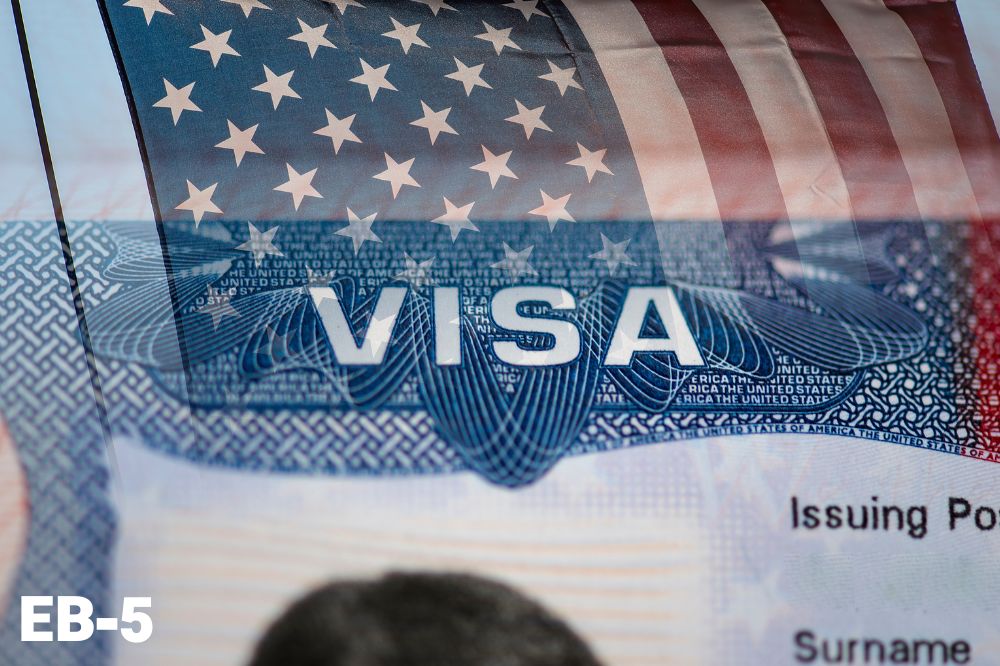EB-5 Visa: Complete Guide to Green Card Through Investment

- Invest $1,050,000 in a new commercial enterprise, or $800,000 if located in a Targeted Employment Area (TEA).
- Create or preserve at least 10 full-time jobs for qualified U.S. workers.
- Choose between direct investment or investing through an EB-5 Regional Center.
EB-5 Visa Requirements and Application Process
The EB-5 visa process is multi-step and can be complex. Here’s a breakdown:
- Consult an EB-5 Attorney: Legal guidance ensures that your investment and documents align with USCIS regulations.
- Select an Investment: Choose a qualified business or EB-5 investment project, either direct or via a Regional Center.
- Make the Investment: Place the required capital at risk, which means there’s no guaranteed return.
- File Form I-526: Submit this form to prove eligibility and investment compliance.
- Apply for a Green Card: If in the U.S., apply via adjustment of status (Form I-485); if abroad, go through consular processing.
- Receive a Conditional Green Card: If approved, you will get a two-year conditional Green Card.
- File Form I-829: This step removes conditions, allowing you to become a lawful permanent resident.
- Apply for U.S. Citizenship: After five years, you may become eligible to naturalize.
EB-5 Investment Options and Processing Times
You can invest directly or through a Regional Center. Regional Centers allow pooling of funds into larger projects like hotels or tech parks. As of 2023:
- Form I-526: Processing time is approximately 29.5 to 61 months.
- Form I-485 (adjustment of status): Takes about 7 to 29 months.
- Consular Processing: For applicants abroad, approval takes 6 to 12 months.
Some projects under EB-5 Regional Centers may receive expedited processing in as little as 6 months.
Top EB-5 Regional Centers and Projects
According to USCIS, there are 547 approved Regional Centers across the U.S., with California leading at 158. Notable investment projects include:
- Waldorf Astoria Beverly Hills
- Ritz Carlton & JW Marriott Los Angeles
- San Jose Marriott Hotels
- Sports complexes, biotech firms, entertainment venues
Reputable platforms like EB5 BRICS provide guidance and diverse investment opportunities.
What to Consider When Choosing an EB-5 Investment
Before investing, evaluate the following:
- Job Creation: Must result in at least 10 full-time jobs.
- Project Viability: Strong financials and management are critical.
- Regional Center Reputation: Prior success rates and investor reviews are key indicators.
- Risk Level: While the investment must be at risk, certain sectors like real estate may offer stability.
- Exit Strategy: Understand when and how you’ll recover your investment.
- Location: TEA investments qualify for a lower threshold of $800,000.
- Regulatory Compliance: The project must fully comply with USCIS requirements.
EB-5 Visa Risks and How to Mitigate Them
As with any investment, the EB-5 program carries risk:
- Immigration Risk: If job creation falls short, your immigration status may be jeopardized.
- Financial Risk: No guaranteed return—your capital must be “at risk” as per USCIS rules.
- Regional Center Issues: Loss of approval or mismanagement can affect your case.
- Project Failure: Delays, cost overruns, or revenue shortfalls may impact success.
- Market Conditions: Economic downturns or real estate collapses can influence results.
- Fraud & Mismanagement: Some cases have involved embezzlement or conflict of interest.
To reduce these risks:
- Conduct detailed due diligence.
- Choose experienced, transparent Regional Centers.
- Hire immigration and financial professionals.
- Ensure the project has proper documentation and USCIS approval.
Conclusion: Is the EB-5 Visa Right for You?
The EB-5 visa is a valuable path to U.S. permanent residency through investment, but it requires strategic planning, thorough research, and professional guidance. Whether you’re investing in a hotel, biotech firm, or infrastructure project, understanding the rules, risks, and rewards is essential. If executed properly, the EB-5 program can be your gateway to a new life in the United States—and eventual U.S. citizenship.